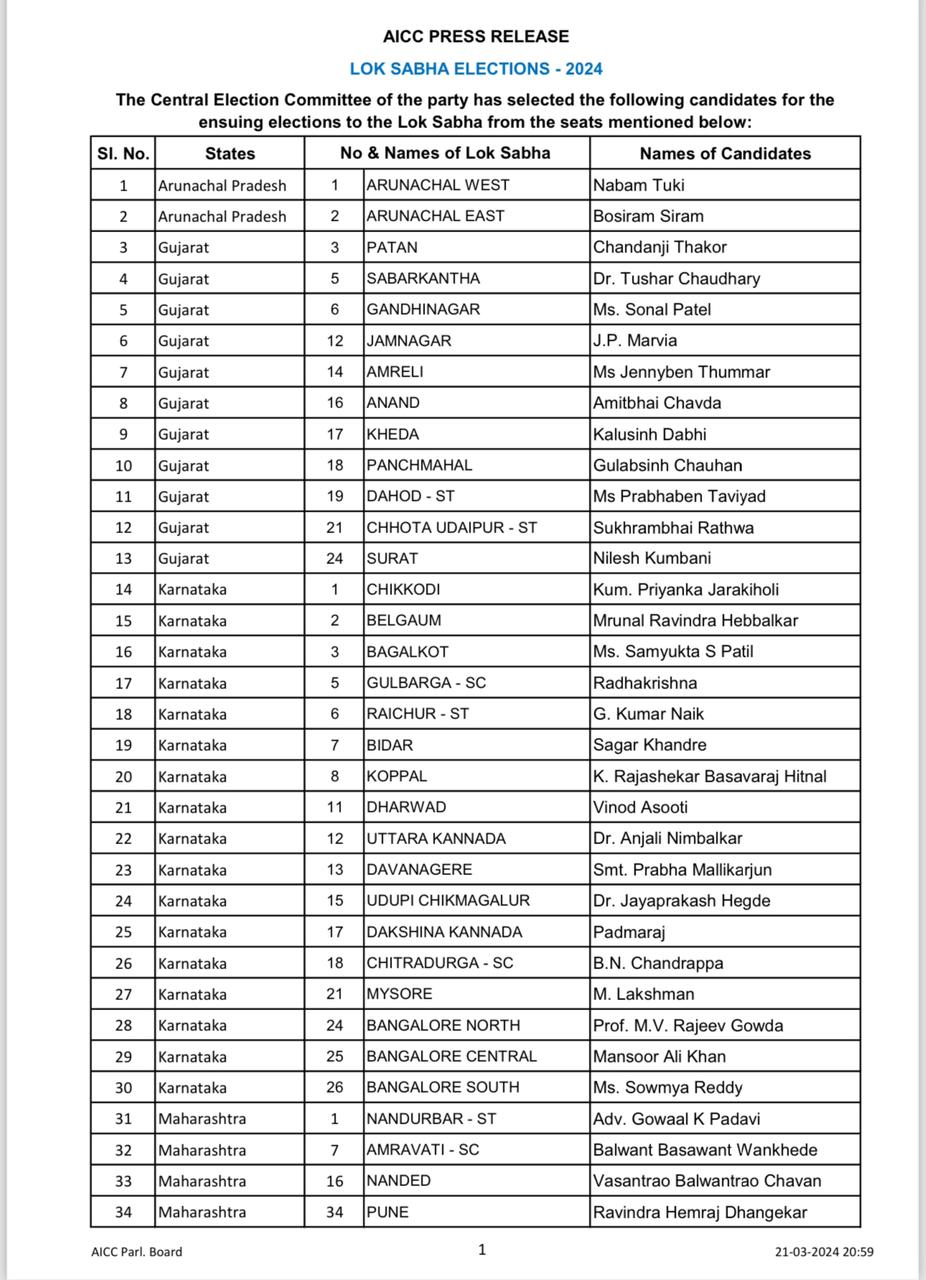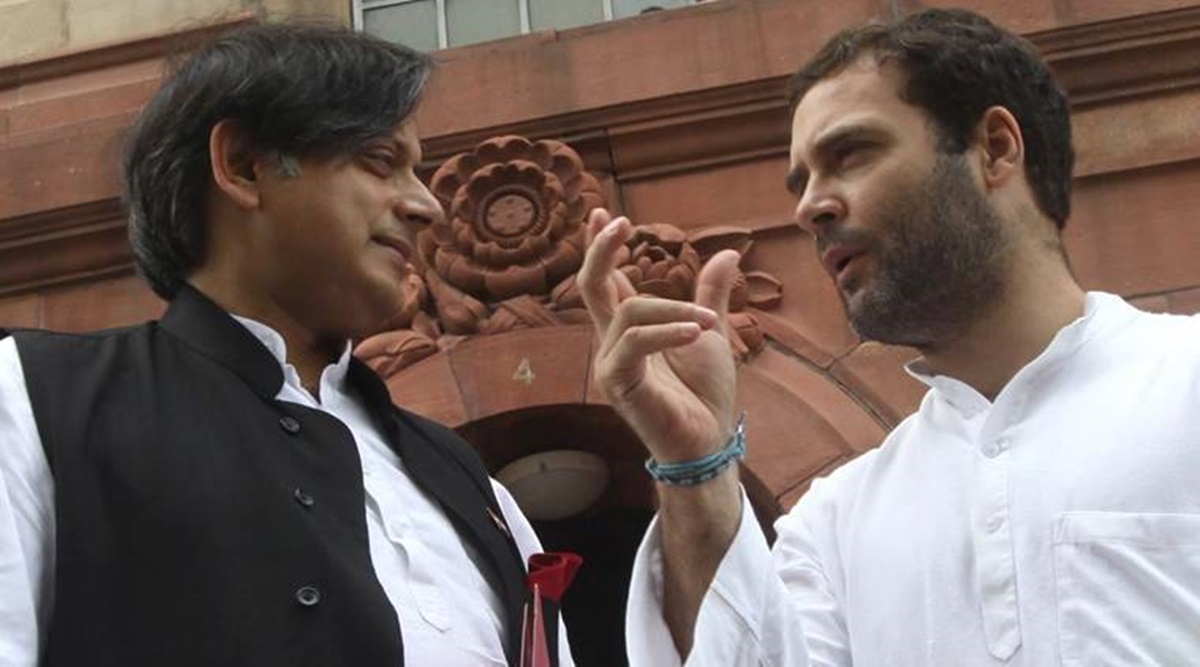The Congress party has unveiled its third list of candidates for the highly anticipated 2024 Lok Sabha elections. The list, comprising 57 names, features a significant number of candidates from political families, indicating the party’s continued reliance on dynastic ties to bolster its electoral prospects.
The release of the third list on March 21, 2024, comes at a pivotal juncture as the Congress party aims to regain its foothold in the country’s political landscape.
Among the notable inclusions are scions of prominent leaders, signaling the party’s commitment to preserving and perpetuating its long-standing political legacies.

Dynastic Candidates to Take Center Stage
Topping the list of dynastic candidates is Radhakrishna, the son-in-law of Congress chief Mallikarjun Kharge. Radhakrishna has been fielded from the Gulbarga constituency in Karnataka, a move that underscores the party’s confidence in leveraging familial ties to secure crucial votes.
Another high-profile inclusion is Praniti Shinde, the daughter of former Union minister Sushilkumar Shinde. Praniti will contest from the Solapur constituency in Maharashtra, inheriting the political mantle from her father and carrying forward the family’s legacy.
While dynasty politics takes center stage, the Congress party has also relied on its veteran leaders to defend key constituencies.
Adhir Ranjan Chowdhury, a seasoned politician and the party’s leader in the Lok Sabha, has been re-nominated from the Berhampore constituency in West Bengal, where he faces a formidable challenge from the ruling party.
In Kerala, the party has placed its trust in Shashi Tharoor, the sitting MP, to retain the Thiruvananthapuram seat. Tharoor’s popularity and oratory skills are expected to play a crucial role in swaying voters in his favor.
Congress’s Strategic Gambit
The Congress party’s third list also holds significance due to the strategic move by former party president Rahul Gandhi.
In a bid to broaden the party’s appeal and consolidate its support base in South India, Gandhi has decided to contest from the Wayanad constituency in Kerala, in addition to his traditional stronghold of Amethi in Uttar Pradesh.
This decision has sparked debates and speculations within political circles, with some analysts viewing it as a calculated risk aimed at projecting Gandhi as a national leader transcending regional boundaries.

However, others have criticized the move as a sign of the party’s waning influence in its traditional bastions.
Congress party’s willingness to forge alliances, has left the Sikar Lok Sabha constituency in Rajasthan for the Communist Party of India (Marxist).
This decision reflects the party’s recognition of the need to consolidate opposition forces against the formidable ruling party.
The party has also made efforts to balance caste and regional dynamics. Candidates like MV Rajeev Gowda, a former Rajya Sabha member, have been fielded from Bangalore North, catering to the party’s urban support base.
Amit Chawda, the Congress Legislative Party leader in the Gujarat Assembly, has been nominated from Gujarat’s Anand constituency, signaling the party’s determination to make inroads in a state where it has traditionally struggled.

The party’s reliance on dynasty politics and established leaders, coupled with strategic alliances and a focus on regional dynamics, reflects its multifaceted approach to regaining its lost glory.
However, the party’s opponents have been quick to criticize the inclusion of dynastic candidates, accusing the Congress of perpetuating nepotism and undermining meritocracy. These accusations have further fueled the ongoing debate surrounding the role of political families in Indian democracy.
The release of the Congress party’s third list of candidates for the 2024 Lok Sabha elections has undoubtedly ignited a firestorm of debates and discussions.
As the campaign trails heat up, all eyes will be on the party’s ability to translate its strategic moves into tangible electoral gains.
Whether the bet on dynasty politics pays off or backfires remains to be seen as the nation gears up for another high-stakes electoral battle.
Also Read: Jammu and Kashmir’s Critical 7-Phase Deferral of Assembly Polls Until LS Elections 2024











